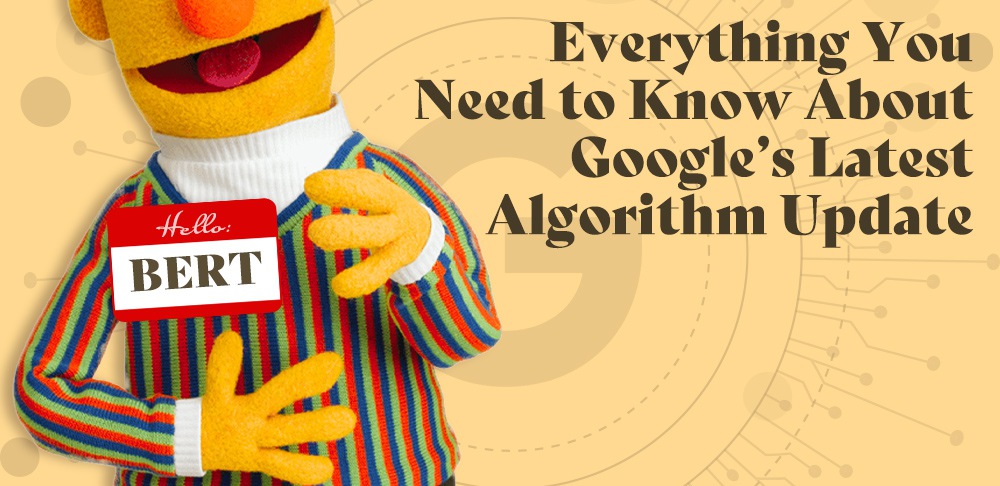Everybody knows the dynamic duo, Bert and Ernie, from the beloved children’s show Sesame Street — but that’s not the Bert we’re talking about here. We’re discussing the new Google update and how it can impact your SEO strategy planning.
What is BERT?
BERT is the name of the algorithm update rolled out by Google on October 25th, 2019, which stands for Bidirectional Encoder Representations from Transformers (what a mouthful). So, what does all of that mean? In short, BERT was introduced to help Google understand and interpret the nuances of human language at a deeper level.
The update utilizes NLP (natural language processing) which allows Google to understand the relationship between words in a sentence on a contextual basis. The outcome is users are served more relevant results based on their search queries.
For example, prior to BERT, if a user were to search “can you get medicine from someone’s pharmacy” Google would return results on how to get a prescription filled, which doesn’t match the search intent of the user. With the BERT update, Google will place a higher importance on the phrase “for someone” and understand the relationship between those words and the rest of the query to better match the intent of the user.
Additionally, BERT is able to understand homonyms based on the context of a sentence. The sentences “what is today’s date” and “what are the benefits of eating dates” both contain the same
word but have different search intents and meanings; the BERT algorithm will recognize the difference between the two and return more accurate results.
How will BERT affect the SERP?
BERT is the biggest algorithm update from Google since they introduced RankBrain in 2015. The purpose of the RankBrain algorithm update was to use machine learning to provide more relevant results for search queries based on the intent of the user. BERT is not a replacement for RankBrain, but rather a supplement to the technology. Both algorithm updates share the similar goal of improving user experience and the relevancy of search results.
According to Google, BERT will be affecting 1 out of every 10 search queries. To give you some perspective on how big this update is, a routine algorithm update from Google will usually affect 0.1% of search results — so affecting 10% is a pretty big deal.
This algorithm update may also have effects on the paid side of search results. Exact match has evolved over the years to include variations of terms that are being bid on, for example, the same ad will be served for the search queries “best vegan vitamins” and “best vegetarian vitamins”. With the BERT algorithm update analyzing words in a query based on context, Google may understand that these two searches have different intents and won’t consider them semantically related, resulting in your ad only be shown for one of the queries.
BERT is also being utilized to improve featured snippets. In the example below BERT recognizes the importance of the phrase “no curb” in the search query “parking on a hill with no curb” and Google is able to return a more relevant result.
The Impact of BERT on SEO
Considering that BERT is improving search results based on contextual terms, this update is likely to affect primarily long-tail keywords. There is no exact science to optimize your website for the BERT update however, your best bet is to write content that follows the natural flow of human conversation and targets long-tail keywords. If the content on your site is already following the aforementioned criteria, BERT could be an opportunity to increase your keyword visibility and even rank for featured snippets. A good way to understand how BERT is affecting your sites is to begin tracking long-tail keywords.
BERT and Voice Search
Search queries are beginning to mimic the phrasing of natural human speech while also increasing in length and specificity. Voice search technology has been instrumental in the way users phrase search queries because it allows for the use of natural speech. BERT will advance the way that voice search technology answers queries which is why it’s more crucial than ever to produce content that imitates the natural cadence of human language.
The Takeaway
It’s important to remember that your content is always targeting the same overall audience: humans. Algorithm updates like RankBrain and BERT make it easier for Google to understand the intent of a query based on language specifics and it’s likely this trend will continue in future algorithm updates.
If you have any questions or want to learn more about BERT, reach out to [email protected].
– Erin Gerety, SEO Coordinator, Direct Agents

